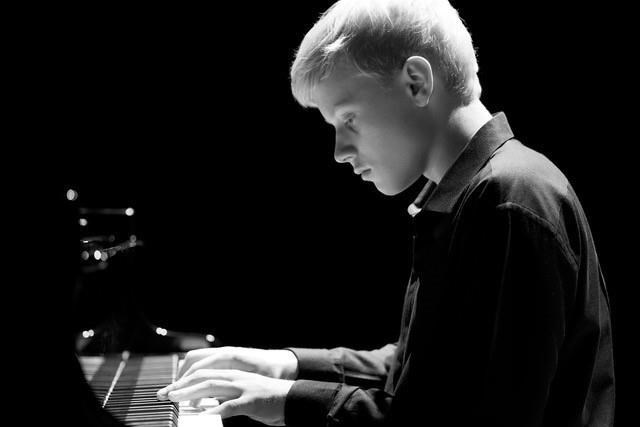VANCOUVER — The decision to cancel a Russian pianist's concert in Vancouver over concerns of protests has left Leila Getz conflicted as she ponders whether a rising young superstar she has repeatedly tried to book will ever perform in the city.
Getz, the founder and artistic director of the Vancouver Recital Society, said Alexander Malofeev was to perform at the Orpheum Theatre on Aug. 2. That was after she'd cancelled his earlier show due to the pandemic and again last November when she learned he'd only had the Sputnik V vaccine, which isn't accepted in Canada.
But when Russia invaded Ukraine, Getz said she had little choice but to call Malofeev's manager and stop the concert, which she feared would draw crowds for the wrong reasons.
"My concern was for the pianist because I look at all the crazies in the world and I look at what's going on. The last thing I wanted to do was bring a 20-year-old to the Orpheum in Vancouver and have it surrounded by protesters and have people inside heckling," she said.
A police investigation is underway into an unrelated incident where someone splattered blue and yellow paint last weekend on the doors of the Russian Community Centre, not far from the venue booked for the classical pianist.
"Personally, and I can deal with this, I've been vilified on social media. I've been called everything from a psychopath to a racist pig," Getz said.
Along with letters from people saying they disagree with her decision, Getz said she also received an email from a Ukrainian musician who questioned whether "punishing" a Russian was the right choice because the arts have no connection to a war that many citizens in that country did not want.
"I see that argument, of course I see it. I'm in the business of putting on concerts," she said, adding the recital society considers the show postponed, not cancelled.
Getz said she hoped to make a fourth attempt to book Malofeev, whom she first heard about years ago when a friend called after seeing an "unbelievable 12-year-old" wow an audience in Israel.
"With what's going on now, I would be shocked if he would agree to come to Vancouver and perform for us," she said of the pianist.
Neither Malofeev nor his management company immediately responded to a request for comment.
He said on his Facebook page that he feels "very uncomfortable" about making statements to journalists and also thinks "that it can affect my family in Russia."
"I still believe Russian culture and music specifically should not be tarnished by the ongoing tragedy though it is impossible to stay aside now," he said in a post Monday. "Honestly, the only thing I can do now is to pray and cry."
Unlike some other performers whose shows have been cancelled elsewhere, Malofeev has never said he supports Russian President Vladimir Putin's invasion of Ukraine, and the society doesn't expect him to state his position "just to get a gig in Vancouver," Getz said.
Malofeev was scheduled to perform three shows with Montreal's symphony orchestra this month starting on Wednesday, but it said in a news release Tuesday that it had withdrawn him from its programming.
The statement said it would be "inappropriate" to welcome Malofeev as Ukraine's population is under siege by the Russian army.
Arts organizations around the world have banned some Russians, including conductor Valery Gergiev, who was fired last week as chief conductor of the Munich Philharmonic.
Simon Brault, director of the Canada Council for the Arts, said public funds will no longer be provided for any activities involving the participation of Russian or Belarusian artists or arts organizations.
Applications that support activities created by or in collaboration with Russian arts groups will not be accepted until Russia withdraws military forces from Ukraine, he said.
"It's not about penalizing any artists," he said. "It's more a question of the spirit of the sanctions against Russia at this point because of what they're doing in Ukraine in violation of human rights and civil rights," Brault said.
"We want the arts to be very central in our lives as citizens and in our public life and all of that," he said. "But the fact that we want that means that when there are big conflicts, or wars or social movements, the arts are impacted. It's very difficult to imagine that the arts would be in some kind of perfect bubble completely separated from society."
— With files from The Associated Press
This report by The Canadian Press was first published March 8, 2022.
Camille Bains, The Canadian Press




